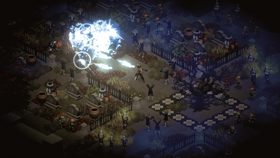Three months after the Writers Guild of America (WGA) called for a strike, it’s about to head back to the table with the Alliance of Motion Picture and Television Producers (AMPTP) today… but that doesn’t mean the work stoppage is about to end.
“We won’t prejudge what’s to come. But playbooks die hard,” the WGA Negotiating Committee said in a message to members yesterday, as reported by THR. They continued by referencing the AMPTP’s conduct in the historic 100-day strike of 2007-08: “After negotiations broke off on October 31st causing the strike, they resumed in late November only to break off for a second time in December as the strike continued. Why? Because when the companies came back to the table they weren’t serious about addressing the WGA’s proposals.”
This time, however, the WGA has more leverage. The Screen Actors Guild – American Federation of Television and Radio Artists (SAG-AFTRA) also called for a strike on July 13 as studios remained stubborn on meeting their contract conditions, making this the first time since 1960 that Hollywood’s writers and actors have been on the picket lines together. As a result, Hollywood production remains at a near standstill.
On Tuesday, the WGA confirmed in a message to members that the AMPTP, through its president Carol Lombardini, reached out to set a meeting for Friday to “discuss negotiations,” heeding the guild’s continued requests for the two parties to head back to the table. But in yesterday’s note to members, the WGA again urged caution while slamming the AMPTP for a campaign of “calculated disinformation.”
“They have attempted, time and time again, through anonymous quotes in the media, to use scare tactics, rumors and lies to weaken our resolve,” the message says. “Article after article has perpetuated a myth that the strike has no impact because streaming services have libraries and some product in the pipeline. Pundits quoting studio executives claim that the strike is good for the companies financially and that they will be happy to have it extend into 2024 so they can write off their losses.”
“This is calculated disinformation about the real impact of the ongoing strikes,” it continues. “We have shut down production. Union writers and actors are so essential in this industry that the companies cannot even attempt to do the work without us. It is not a viable business strategy for these companies to shut down their business for three months and counting no matter how much they try and pretend it is.”
"It is not a viable business strategy for these companies to shut down their business for three months.
The AMPTP, for its part, responded to the WGA's memo with their own statement: “Tomorrow’s discussion with the WGA is to determine whether we have a willing bargaining partner. The WGA Bargaining Committee’s rhetoric is unfortunate. This strike has hurt thousands of people in this industry, and we take that very seriously. Our only playbook is getting people back to work.”
The items of news the WGA may be referring to in their memo include Disney CEO Bob Iger’s comments that the WGA and SAG-AFTRA’s asks are “not realistic,” as well as a previous Deadline report that cited anonymous studio sources who said the AMPTP’s plan was to let writers “start losing their homes” before resuming talks. And just yesterday, Warner Bros. CEO David Zaslav claimed during an earnings call that the studio has actually saved money amid the strikes.
But, as the WGA notes, whatever backlog of content the studios have will run out soon enough. When the WGA called for a strike in early May, much of Hollywood’s production grinded to a halt. While some major productions, like Deadpool 3, continued filming with previously completed scripts, the subsequent SAG-AFTRA work stoppage pressed pause on nearly all of it. And several studios, including Sony, have already started delaying previously dated projects.
Basically, when it comes to the AMPTP’s “everything is fine” narrative, the WGA is blunt: “we’re not falling for it.”
“Screenwriters, Appendix A writers, episodic television writers, all writers – have marched together for 94 days now. We have struck to make writing a viable profession for all of us, now and in the future. We have not come all this way, and sacrificed this much, to half-save ourselves,” yesterday’s message continues.
“Therefore, we challenge the studios and AMPTP to come to the meeting they called for this Friday with a new playbook: Be willing to make a fair deal and begin to repair the damage your strikes and your business practices have caused the workers in this industry.”
The WGA, they make clear, are remaining staunch in fighting for necessary contract provisions for its members, which include protections against AI technology, improvements to compensation and residuals in the streaming era, and a minimum number of workers hired for writers’ rooms (in response to what some writers call the “evil” practice of so-called “mini rooms”).
For more, check out our breakdown on how streaming is broken and why the strikes can fix it.
Thumbnail credit: Mario Tama/Getty Images
Alex Stedman is a Senior News Editor with IGN, overseeing entertainment reporting. When she's not writing or editing, you can find her reading fantasy novels or playing Dungeons & Dragons.




